And God said, “Let the earth bring forth grass, the herb yielding seed, and the fruit tree yielding fruit after his kind, whose seed is in itself, upon the earth: and it was so. And the earth brought forth grass, and herb yielding seed after his kind, and the tree yielding fruit, whose seed was in itself, after his kind: and God saw that it was good.”
— Genesis 1:11 & 12
There are so many ways that we can help the people of Haiti, and we think that one of the best ways is to create long-term sustainability that increases food security for Haitian families. This was our challenge in developing sustainable agricultural practices. How would we teach an old Haitian farmer to embrace a new method of farming?
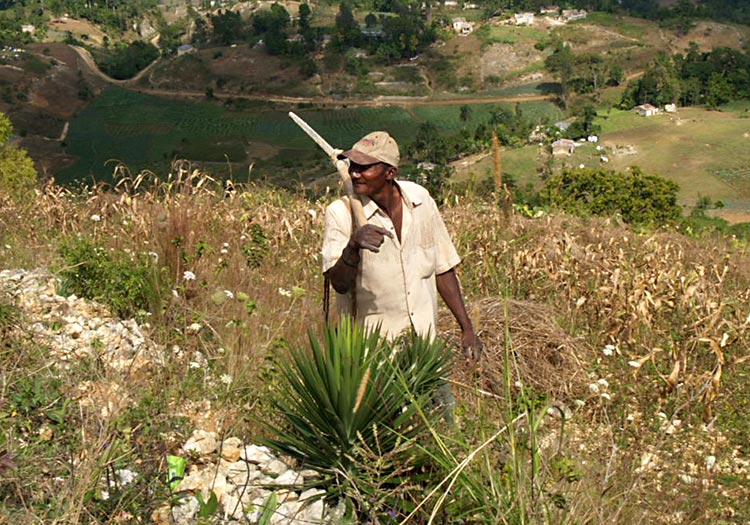
Haiti has the unique distinction of “suffering from a degree of environmental degradation almost without equal in the entire world. The virgin forests that once covered the entire country have now been reduced to less than four percent of the total land area. According to United Nations sources, Haiti loses three percent of its forests every year. Deforestation has had a disastrous effect on soil fertility because the steep hillsides on which so many Haitian farmers work, are particularly susceptible to erosion,” as stated by the Encyclopedia of the Nations.
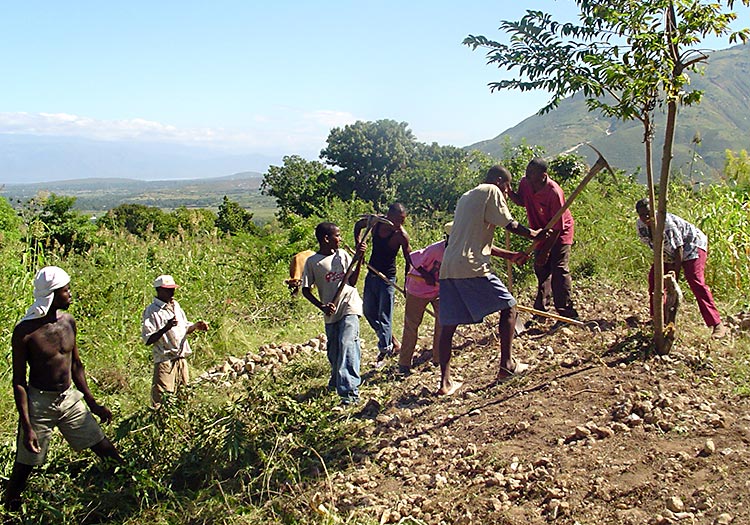
Farming God’s Way
Farming God’s Way is an approach to farming that involves teaching biblical principles, along with proven management and agricultural techniques to improve crop yields. The traditional methods of “slash and burn” deforestation and tilling the ground has caused major erosion problems and washed away most of the rich soil.
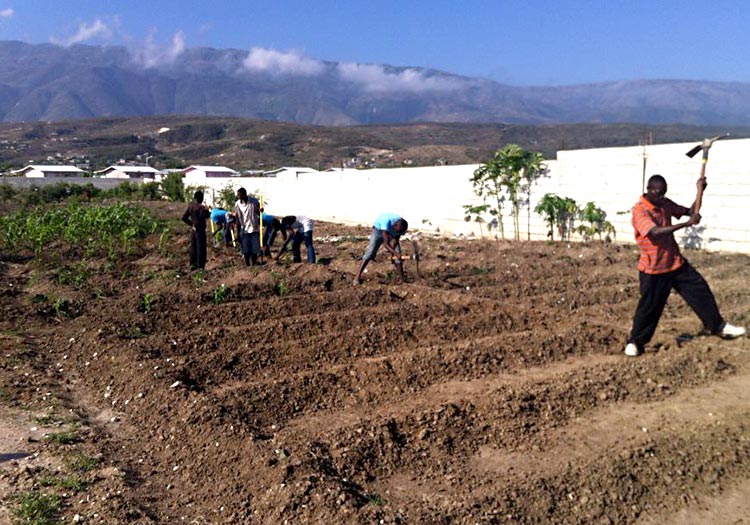
The concept for the Agricultural Training Center (ATC) is to provide a unique place for locals to learn by seeing, hearing and practicing those gardening methods that are simple, affordable and will improve the quality of life. As a “Living Classroom,” the ATC demonstrates the best sustainable agricultural practices to improve food security and promote agricultural-based jobs in Haiti.
The Agricultural Training Center
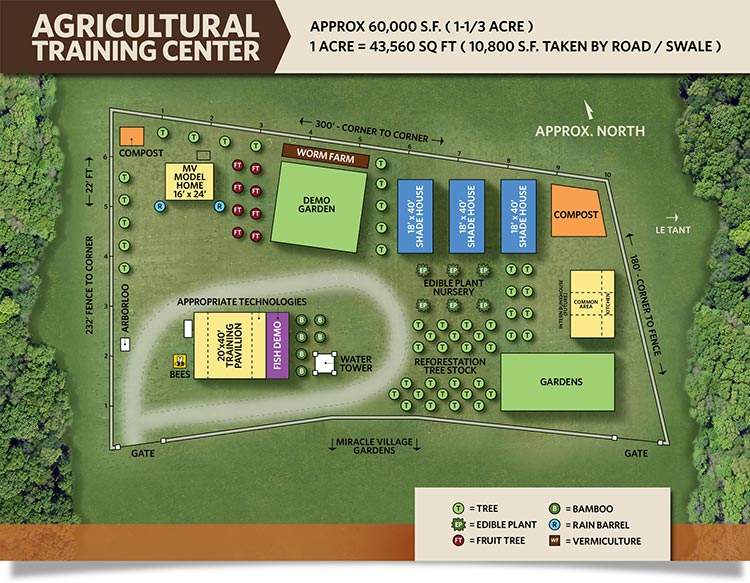
The first buildings we put up were the ATC training pavilion and model home built by a group from Builders Without Borders – Fort Myers, which was completed in February 2014.
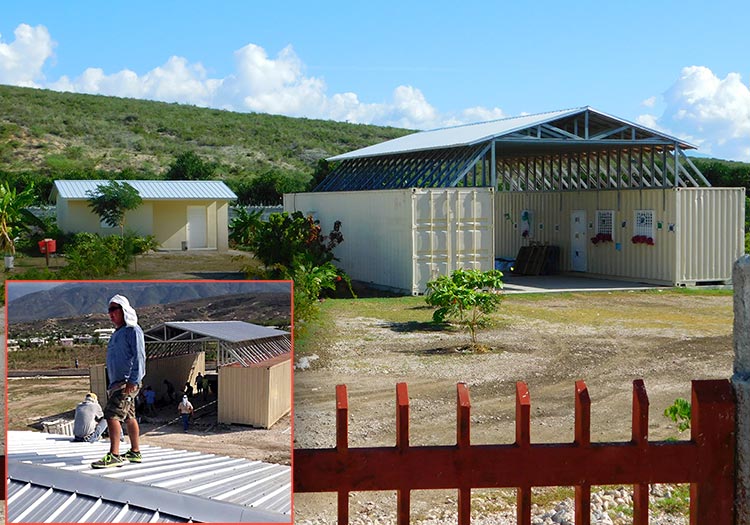
The next buildings we added at the ATC were the three shade houses donated and erected by a team of four men from Global Compassion, led by Joe Perkins and they were completed April 2014.
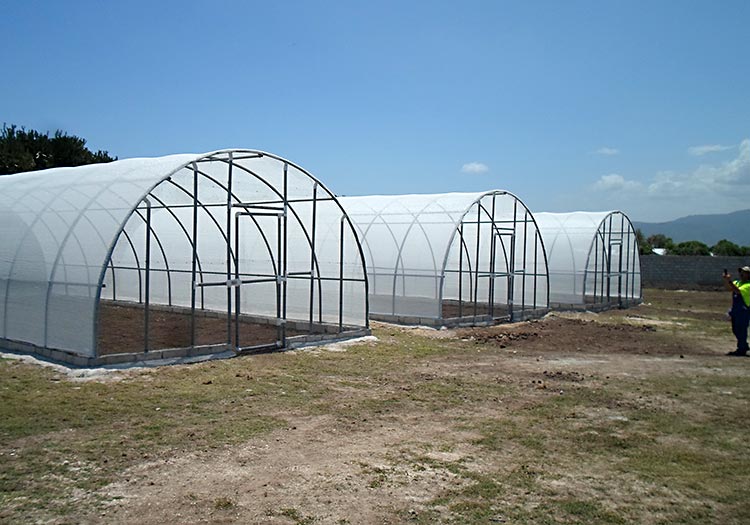
We are now expanding our Agricultural Training Center to include a new bunkhouse for use by visiting agricultural students and interns. Recently, a team of volunteers from the Fort Myers, Florida area were here building the bunkhouse for the Agricultural Training Center. The team from Fort Myers was a group of business men who volunteered to come to Haiti to build several projects, including the bunkhouse, which they also funded.
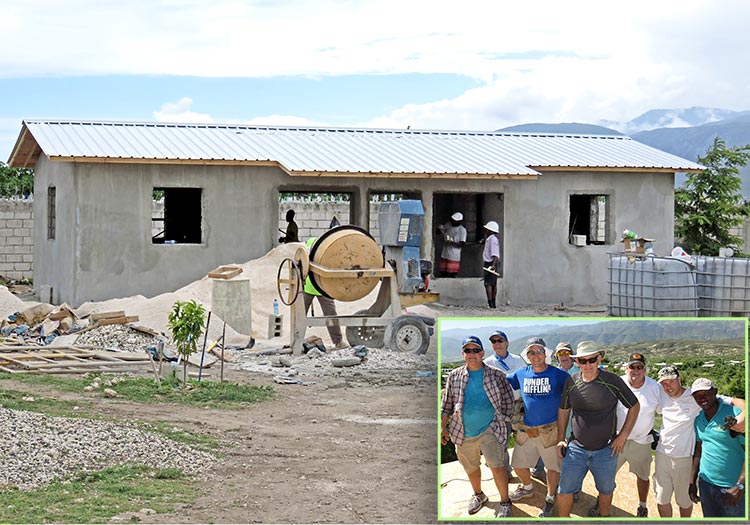
Des Etudiants en Agro-Ecologie
We just started our second two-year Agricultural Training Program at the Love A Child Agricultural Training Center. We have a fresh new group of young men and women eager to learn and make a difference in their homes and communities. At the training pavilion, Wilner, our head trainer, demonstrates techniques for erosion control, composting, organic fertilizers, pest control, proper irrigation, etc. We also teach locals about “Farming God’s Way,” age-old methods to improve productivity and nutritive value, while preserving natural resources.
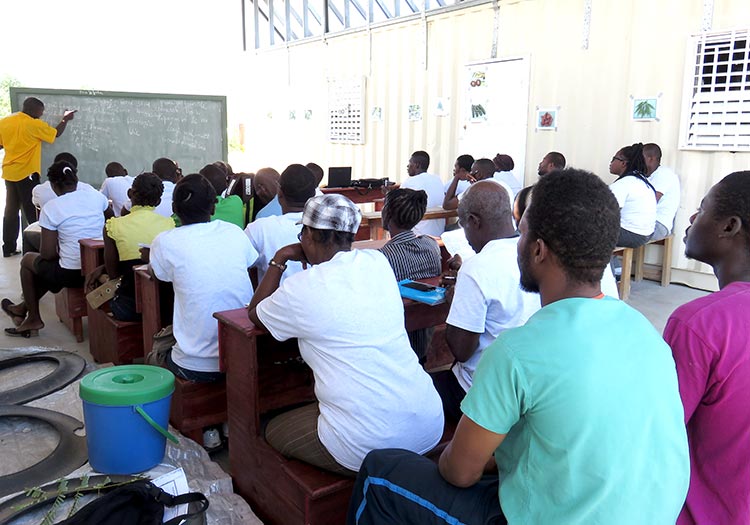
Changing the future of Haiti requires changing the way people think about the present. We demonstrate reliable, bountiful harvests using our methods of production, even when surrounding traditional gardens have failed. We use methods such as raised beds, heavy mulches, drip-irrigation, “homemade fertilizer” from composting and worm farming to produce large bountiful harvests, season after season.
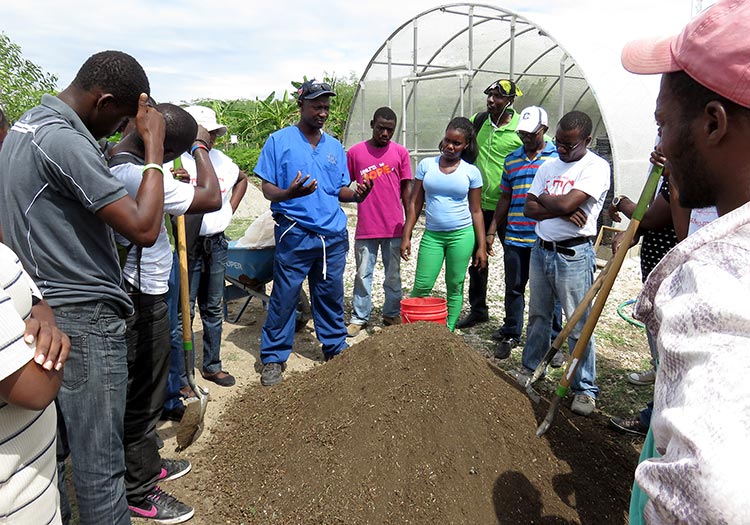
One of the biggest challenges that Haitians face is improving their soil with what little resources they may have. At the Agriculture Training Center, Wilner is teaching farmers how to raise worms to turn manure and other waste products into viable fertilizer to improve their soils.
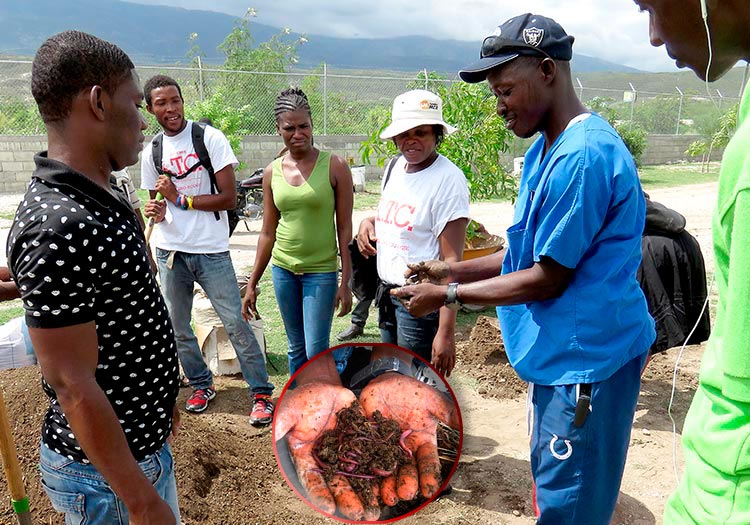
David Balsbaugh, Director of Sustainability, has developed several methods for making “homemade fertilizer,” one of which is taking the recycled water from the fish farm that is enriched from fish waste and adding it to the drip-irrigation buckets. Dave is also developing an appropriate technology using a bio-char kiln (as shown in photo inset). The bio-char converts agricultural waste into a soil enhancer that can hold carbon, boost food security, and increase soil biodiversity, while discouraging deforestation. Bio-char is added to the “homemade fertilizer” which when added to soil, greatly improves the quality and helps neutralize the acid. The enriched soil stimulates growth and improves plant health and color, it is also tremendously beneficial for successful rooting and soil quality over a long period of time. This is also a step forward in developing a model for new enterprises for the Haitians to make bio-char to sell to gardeners.
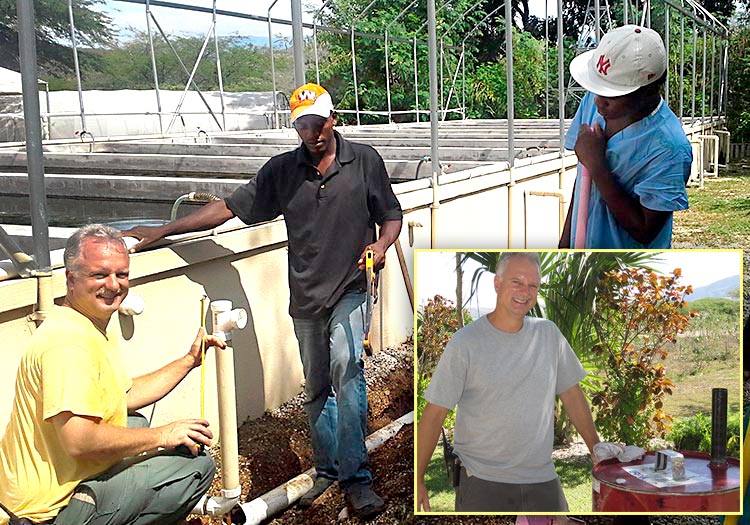
All this enriched dirt is then put back into the garden beds to improve the soil.
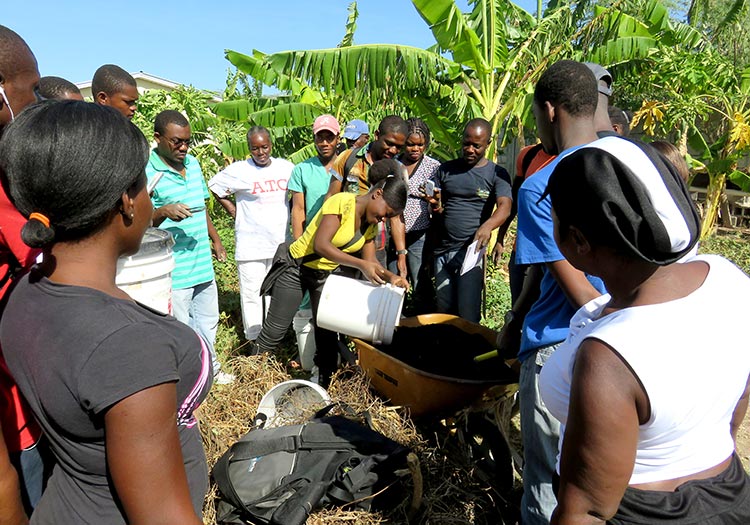
The new drip-irrigation method allows us to introduce our “homemade fertilizer” directly into the water buckets that then supply the water for the drip irrigation lines down each row of plants.
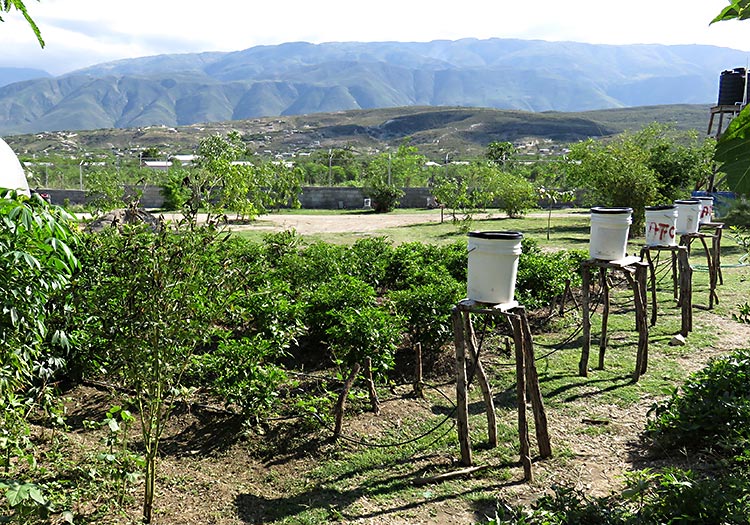
Wilner is doing hands-on teaching in the ATC’s main vegetable garden, among the pepper plants.
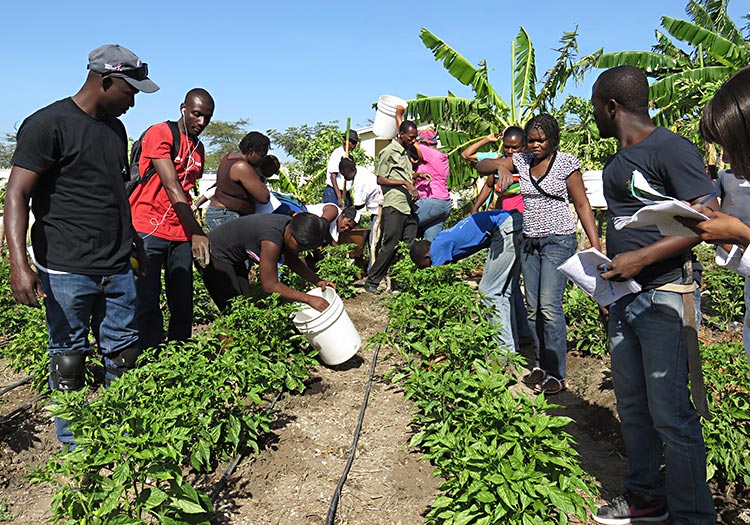
He also shows another method of cultivation in an area where there is limited space or the ground is all rocks. They can use re-purposed tires as raised beds for growing vegetables with the enriched soil.
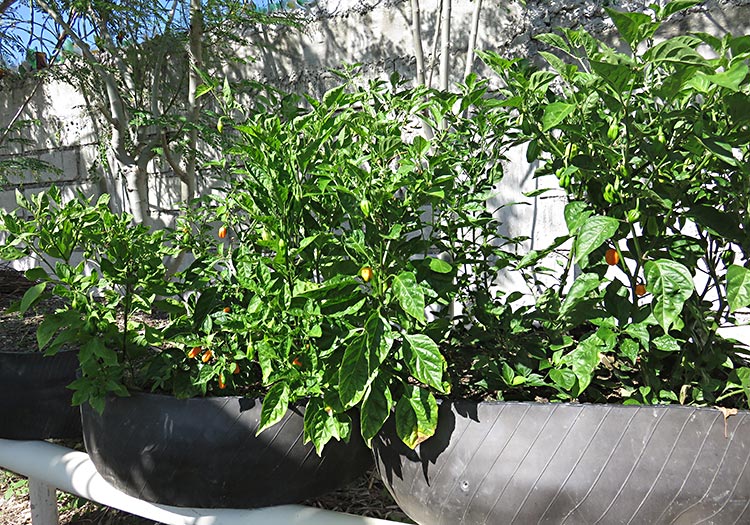
Some of the new farming methods taught include plant diversity and introducing better varieties of vegetables and fruit trees to extend the growing season and improve the amount of food available. Organic pest control, crop rotation, proper irrigation and introducing “nitrogen fixing” cover crops and trees to replenish the nutrients in the soil, are all a part of Farming God’s Way.
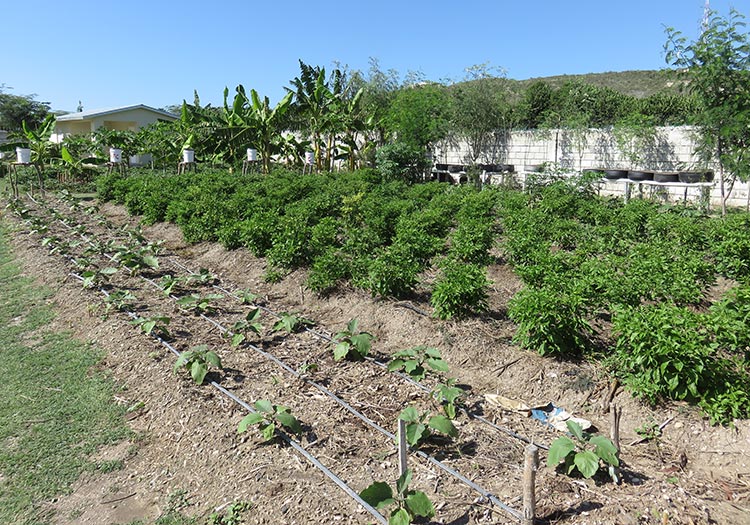
We recently held a graduation for the students who completed our first two-year program at the Love A Child Agricultural Training Center. These young farmers were so proud!
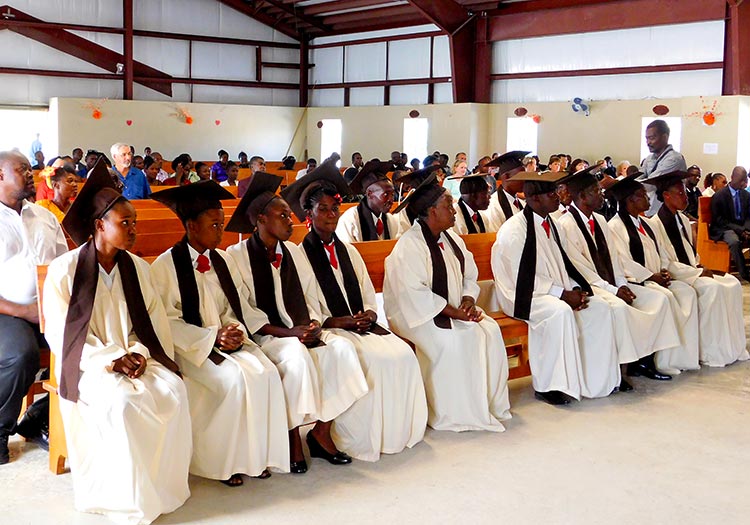
Wow! Look what they grew and brought with them to give us! There are unlimited possibilities to what Haitians can produce if they are only taught the skills.
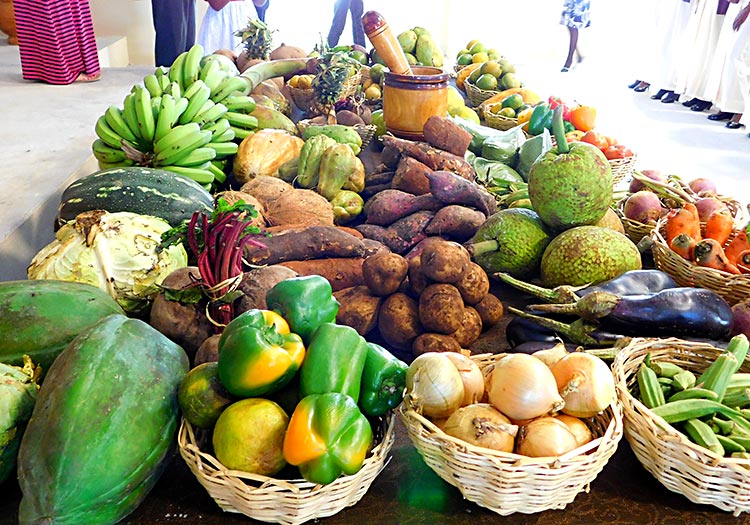
Thank you Rad Hazelip for your vision and hard work of putting your dream together. Thanks also to David Balsbaugh for bringing your family to Haiti to manage the Sustainability Projects. Thank you Johnny, Paul and Shelby Mahon for working hard putting in the only sprinkler system for gardens that we know of in Haiti. Thanks to Life Changers Church and Pastor Gregory Dickow for the funds to start the farm project. Lastly, thank you Foster Fries for funding the Agricultural Training Center. We thank all of our partners that have helped with this project by traveling here to build shade houses, or teaching or your financial support, every gift is important. “Love is Something You Do!” Please consider donating now to support our Agricultural Training Center.
God bless you,
Sherry


